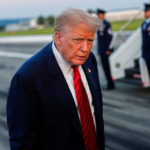France24: Bangladesh’s interim leader and Nobel laureate Muhammad Yunus announced Tuesday that national elections will be held in February 2026, aiming to restore democratic governance following the ousting of former Prime Minister Sheikh Hasina last year.
Bangladesh’s interim leader, Nobel Peace Prize laureate Muhammad Yunus, said Tuesday that the country’s parliamentary election would be held in February.
“On behalf of the interim government, I will write a letter to the Chief Election Commissioner requesting that the election be arranged before Ramadan in February 2026,” Yunus said in a broadcast on the one-year anniversary of the ousting of prime minister Sheikh Hasina.
Hasina has been in exile since August 5 last year as she fled the country amid a student-led mass uprising, ending her 15-year rule. She faces trial for crimes against humanity over the hundreds of deaths during the student-led uprising.
The Election Commission will set a specific date for the election.
“We will step into the final and most important phase after delivering this speech to you, and that is the transfer of power to an elected government”, he said.
“I urge you all to pray for us so that we can hold a fair and smooth election, enabling all citizens to move forward successfully in building a ‘New Bangladesh'”, he added.
“On behalf of the government, we will extend all necessary support to ensure that the election is free, peaceful and celebratory in spirit.”
Yunus had sought an April election, but major political parties, mainly the Bangladesh Nationalist Party led by former Prime Minister Khaleda Zia, sought a February vote before the Islamic holy month of Ramadan in the Muslim-majority nation of 170 million people.
Yunus, a Nobel Peace Prize laureate for his past work developing microcredit markets, was flanked by senior leaders of major political parties as he announced a road map aimed at national unity, democratic reforms and inclusive governance. A student group that led the anti-Hasina movement had formed a political party, National Citizen Party, and campaigned for the declaration.
Senior leaders of the Bangladesh Nationalist Party and the Jamaat-e-Islami party were present. Zia is Hasina’s archrival, and her party is the main contender for power in the election.
The presence of the Jamaat-e-Islami, the country’s largest Islamist party, was especially visible on the streets of the capital, Dhaka. The supporters of its student wing carried the flags of Bangladesh and Palestine.
Bangladesh is at a crossroads, with political parties struggling to find a way forward with inclusive politics. The rise of the Jamaat-e-Islami and other Islamist forces has drawn attention since Hasina’s ouster.







